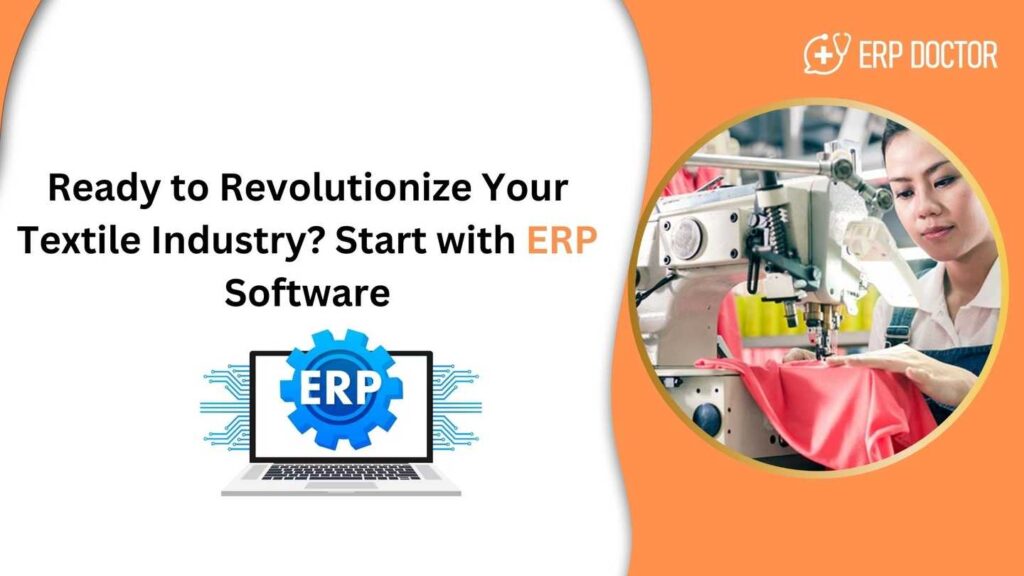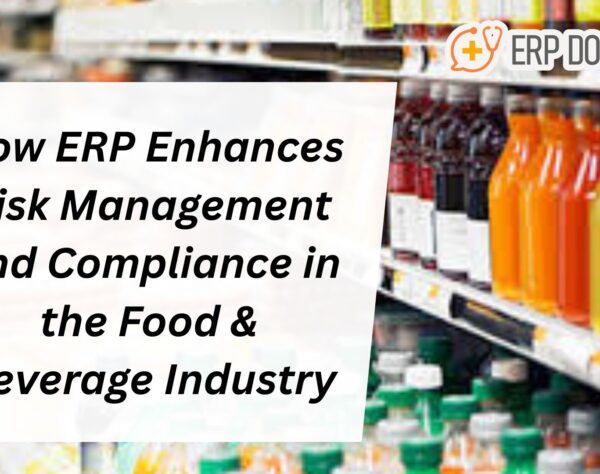
Ready to Revolutionize Your Textile Industry? Start with ERP Software

Textile Industry Success The Essential Role of ERP Software
The textile industry is a complex and dynamic sector that involves numerous processes, from raw material procurement to finished product distribution. Efficient management of these processes is essential to stay competitive and meet market demands. In this blog, we explore the significance of ERP systems for the textile industry. ERP systems offer an integrated approach to manage and optimize these processes, ensuring seamless operations and enhanced decision-making. By implementing ERP solutions, textile manufacturers can streamline operations, boost productivity, and achieve higher profitability.
The Need for ERP in the Textile Industry
1. Enhanced supply chain visibility with ERP in textiles
ERP systems offer a unified platform to manage various functions, including procurement, production, inventory management, and sales. This integration eliminates data silos, reduces duplication of efforts, and enhances collaboration across departments.
2. Enhanced Productivity:
By automating routine tasks and providing real-time data access, ERP systems allow textile manufacturers to focus on core activities. This automation leads to increased productivity, reduced operational costs, and improved resource utilization.
3. Better Inventory Management:
Effective inventory management is crucial in the textile industry to avoid overstocking or stockouts. ERP systems provide accurate inventory tracking, demand forecasting, and timely replenishment, ensuring optimal inventory levels and reducing carrying costs.
4. Quality Control:
Maintaining high-quality standards is essential for customer satisfaction and brand reputation. ERP systems offer quality control modules that monitor and manage quality at every stage of production, ensuring that the final products meet the required standards.
5. Improved Decision-Making:
ERP systems provide real-time data and analytics, enabling textile manufacturers to make informed decisions. With access to accurate and up-to-date information, businesses can identify trends, anticipate market changes, and respond proactively.
Essential functionalities for the textile sector
1. Production Planning and Scheduling:
ERP systems facilitate efficient production planning and scheduling by considering factors such as machine capacity, workforce availability, and order priorities. This ensures timely production and delivery of goods.
2. Supply Chain Management:
Managing the supply chain is critical in the textile industry. ERP systems offer end-to-end supply chain management, including supplier management, order tracking, and logistics optimization, ensuring smooth and efficient supply chain operations.
3. Cost Management:
ERP systems provide detailed cost analysis and budgeting tools, helping textile manufacturers control production costs and improve profitability. By identifying cost-saving opportunities, businesses can enhance their financial performance.
4. Customer Relationship Management (CRM):
ERP systems include CRM modules that help manage customer interactions, track sales, and provide personalized services. This enhances customer satisfaction and loyalty, driving repeat business and growth.
5. Compliance and Reporting:
The textile industry is subject to various regulations and standards. ERP systems ensure compliance with industry regulations by providing accurate and timely reporting, reducing the risk of penalties and ensuring smooth operations.
The implementation of ERP systems has brought significant benefits to the textile industry, transforming the way businesses operate and compete in the market. By streamlining operations, improving productivity, and enhancing decision-making, ERP systems have become an indispensable tool for textile manufacturers. As the industry continues to evolve, adopting ERP solutions will be crucial for staying ahead of the competition and achieving long-term success.
Struggling with ERP implementation? Visit ERP Doctor for expert guidance.







